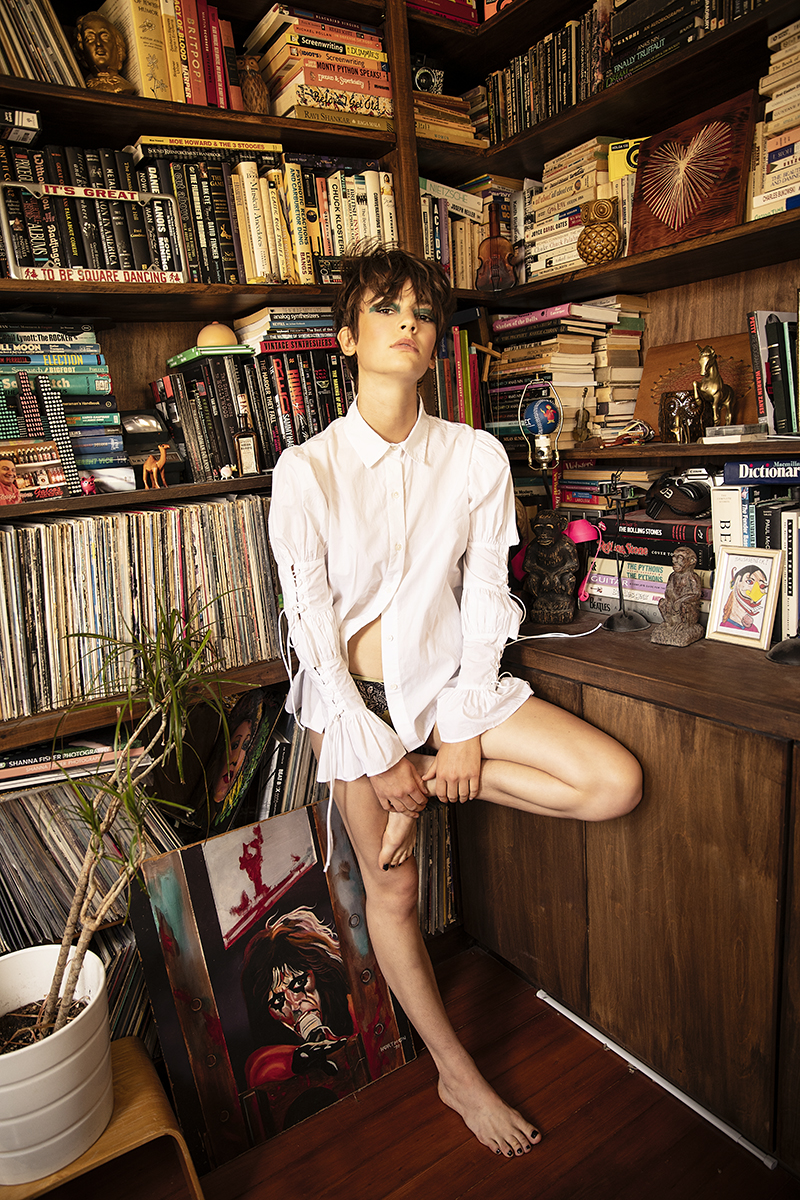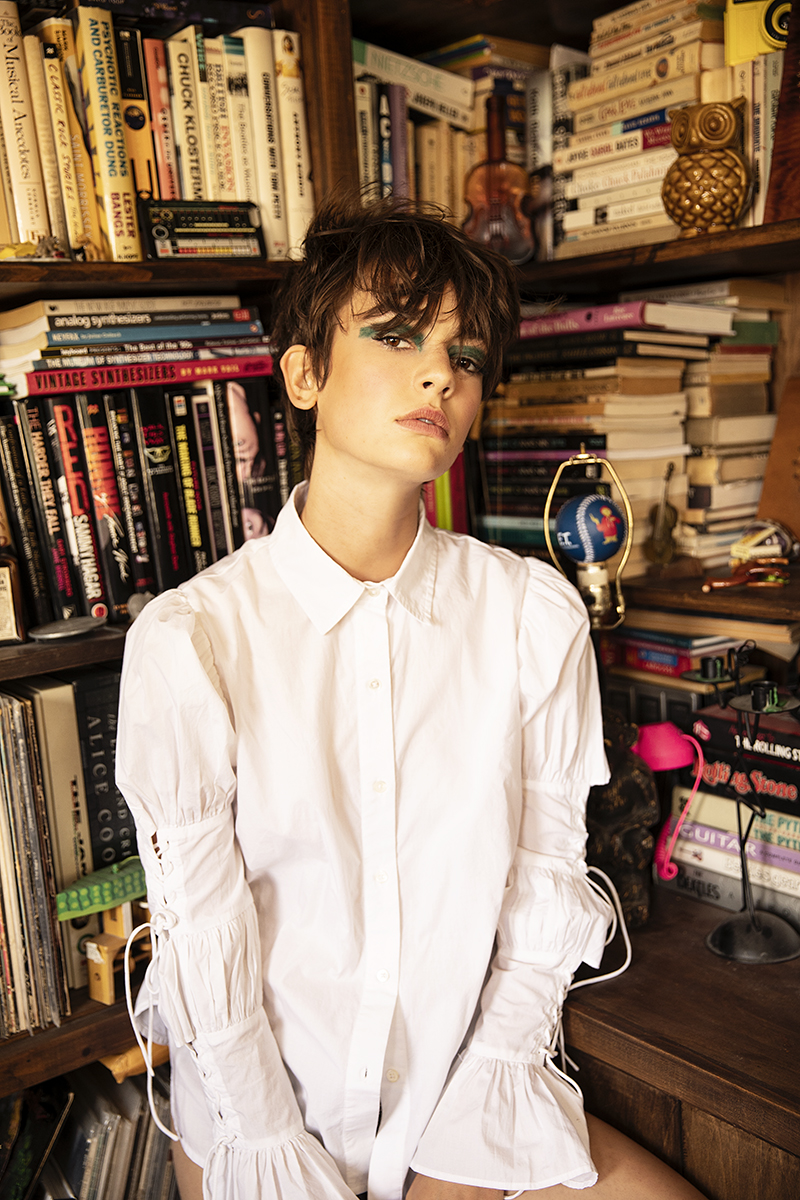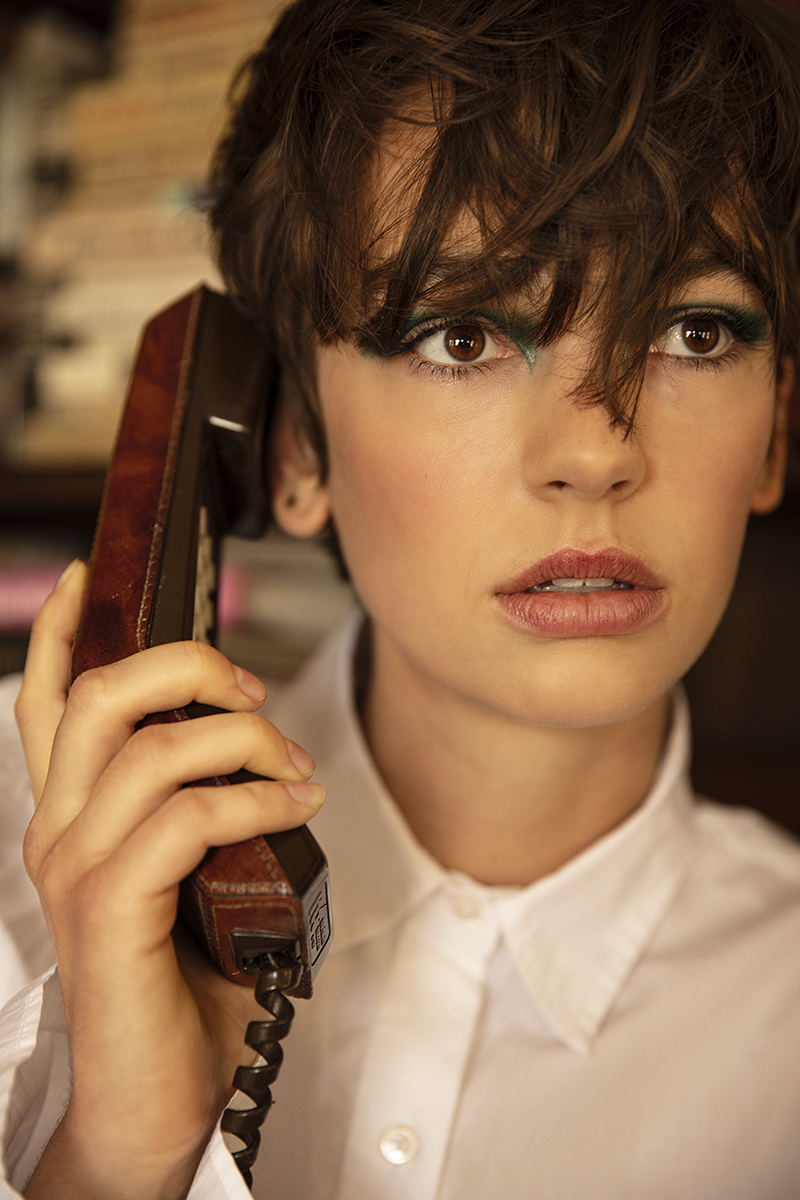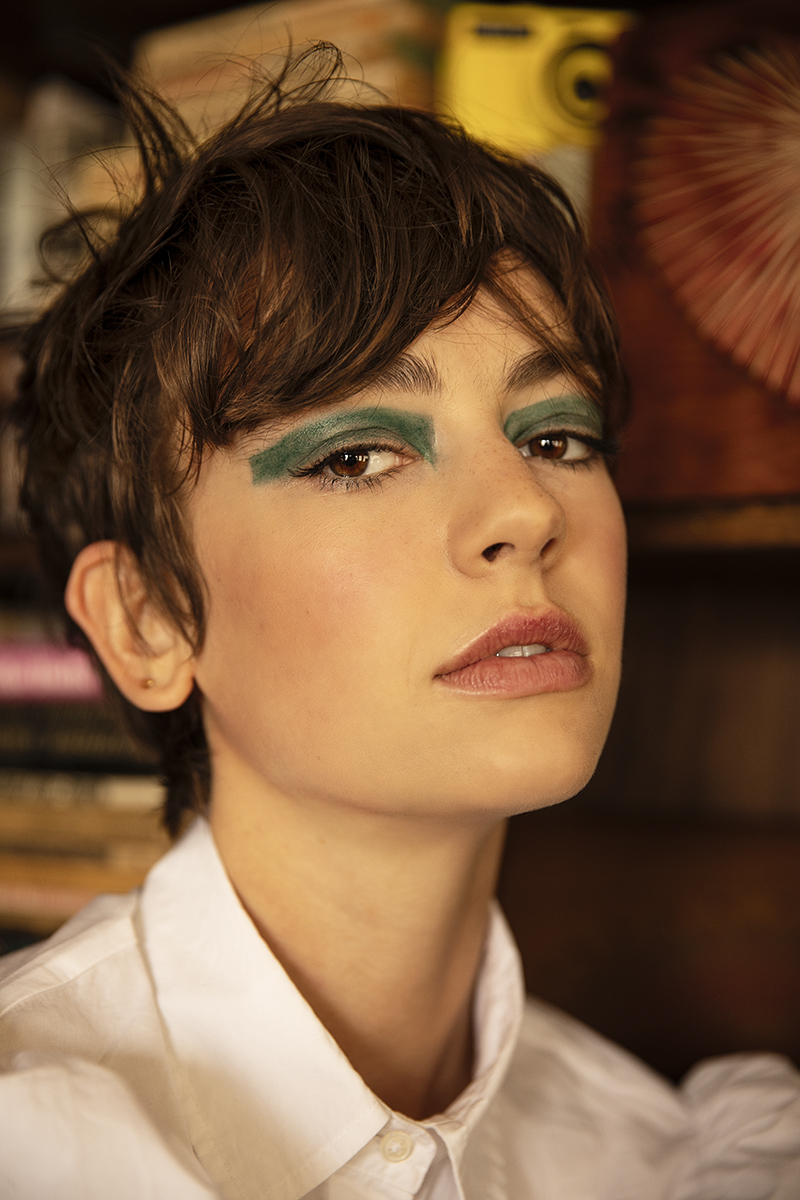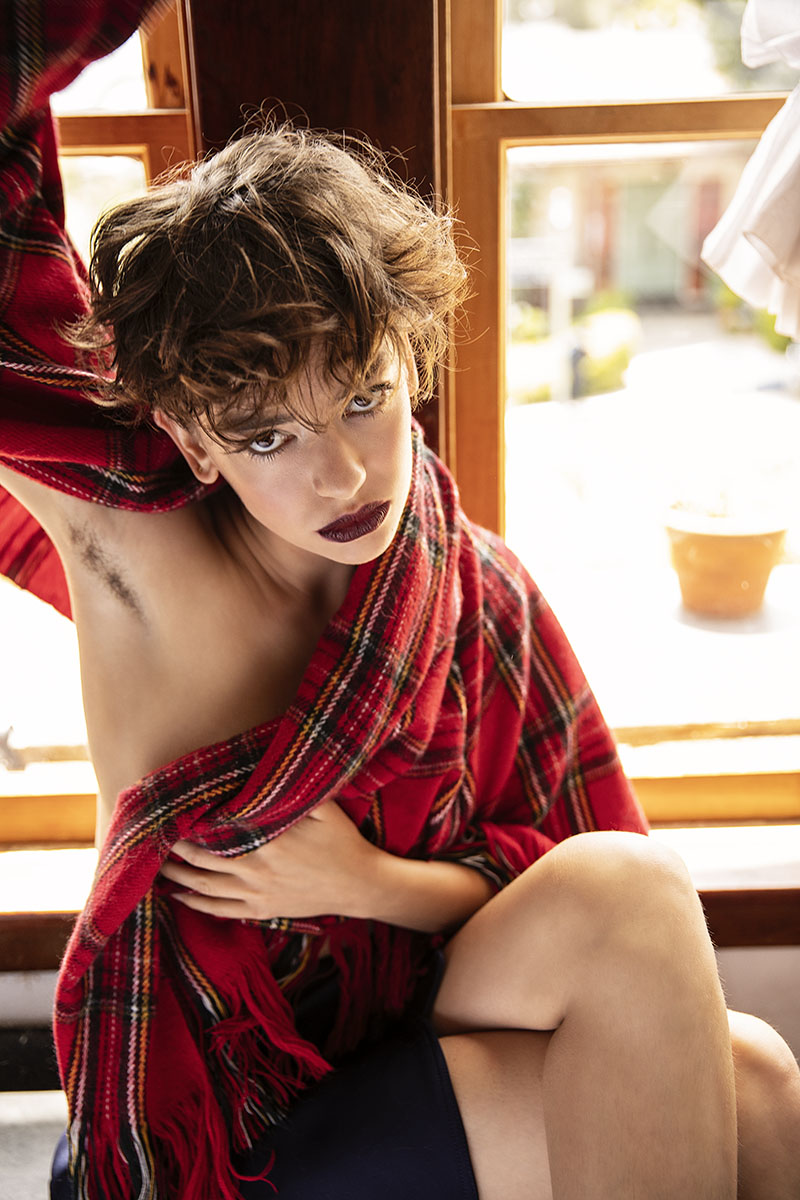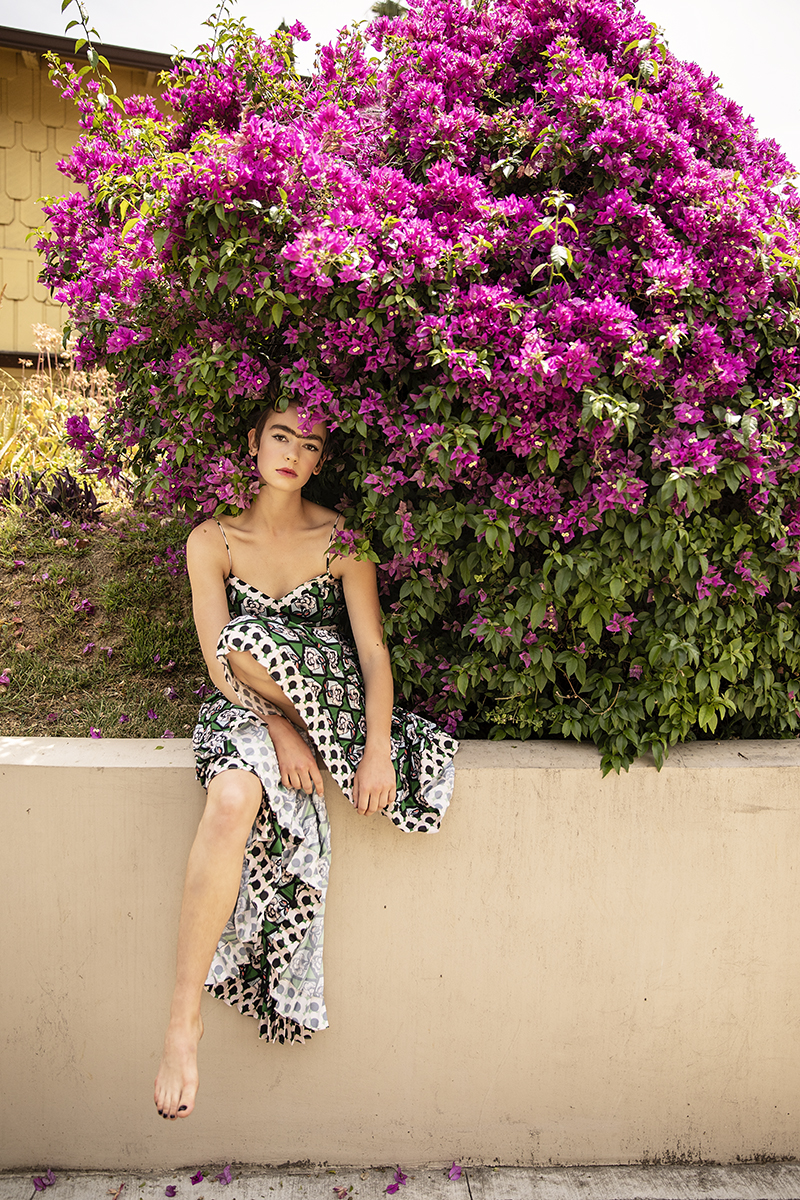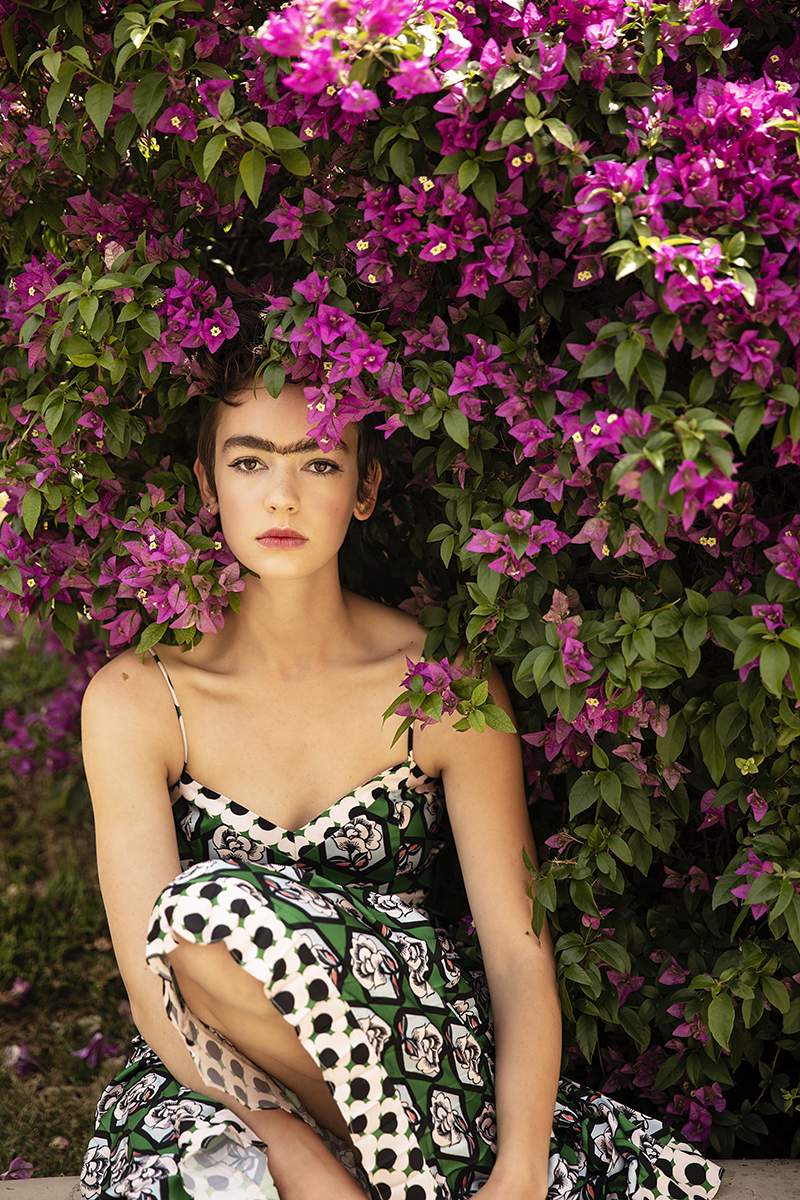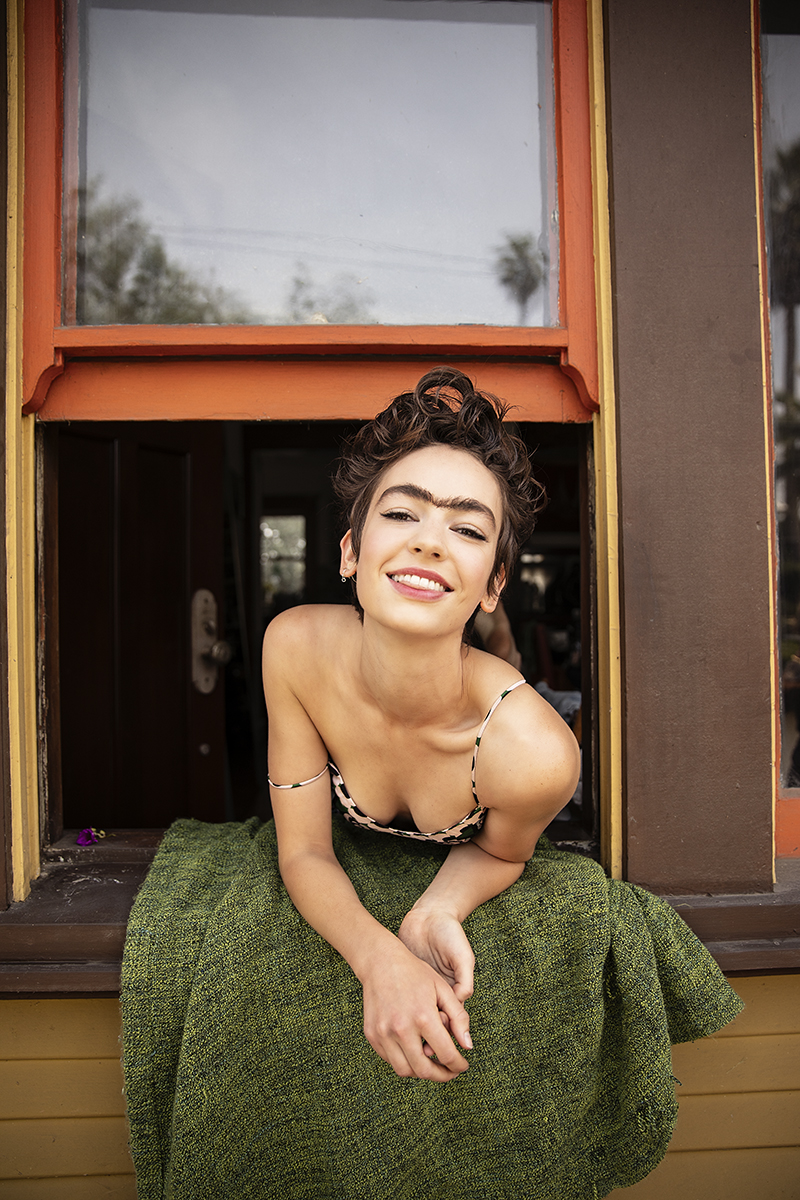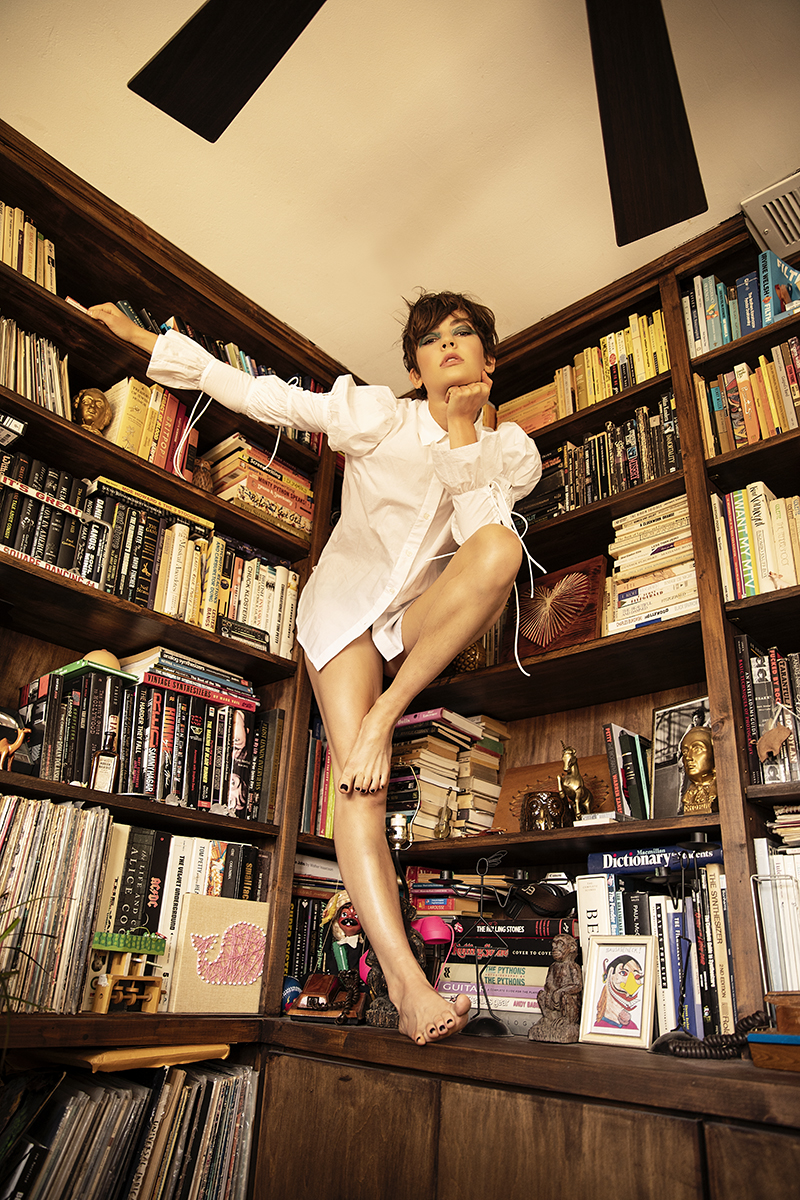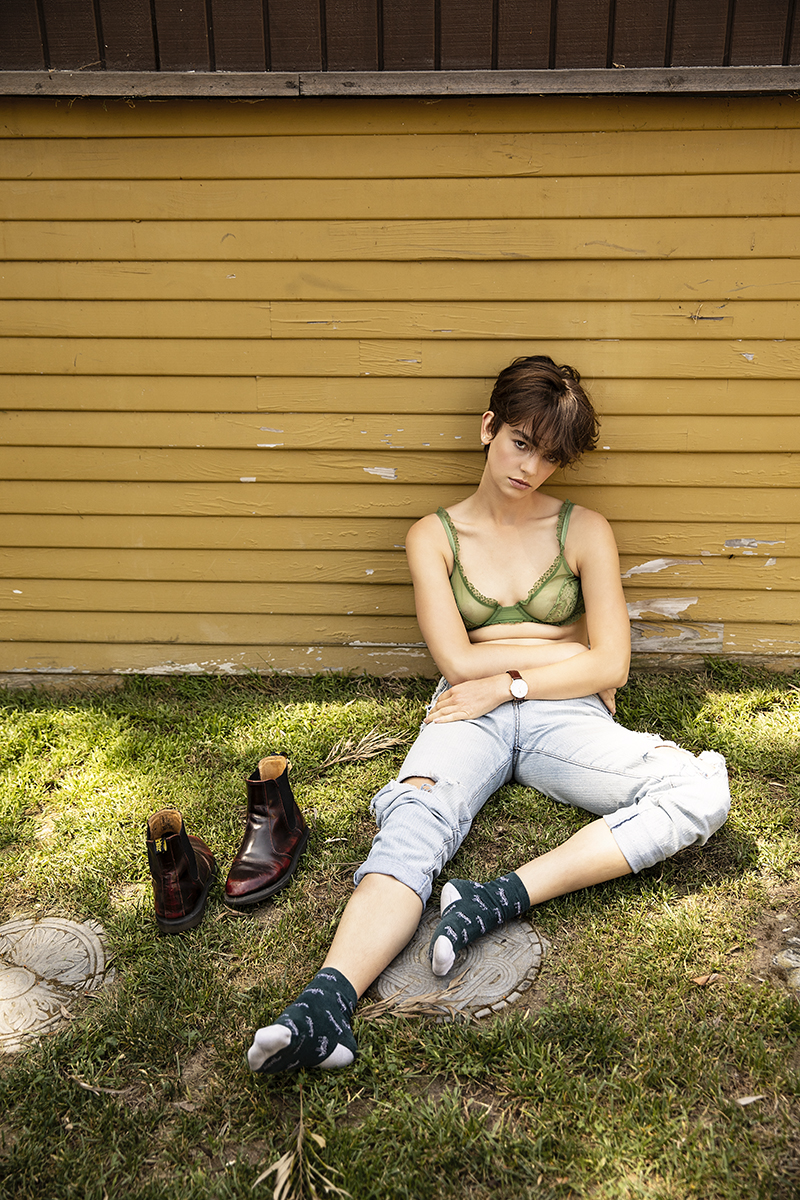
Brigette Lundy-Paine is quite atypical by Hollywood standards. The lithe 25-year old star of Netflix’s dramedy Atypical is an editor-in-chief for her magazine Waif, pop art star in her bandSubtle Pride, and an overall gem of a weirdo.
Lundy-Paine could easily float through Hollywood on an upward trajectory based on her looks alone, but the young darling has chosen to go in an authentic, artistic route that has ushered in the new wave of performers that are not just cogs in the entertainment system but wheels of change grinding to a better future.
We talk with the actor about her hit show Atypical, the various projects she tends to and her dedication to changing the times.
I know your parents are performers- is that what kind of got you into acting and performing?
Yeah, my parents are both artists. My dad acts still now, but both of them turned to produce more when I was younger. But they met in a chorus line, the show of the Cancan, but they were both in the back row because they both couldn’t dance. So they were both performers my whole life. When I was about ten, they started a theater company in the Bay Area called Virago, so I really grew up in the theater and so it was a very natural transition. But I fell in love with it independently at a young age because it was just kind of in my blood.
So, what was your childhood like growing up? Do you have any brothers and sisters?
Brigette: I do, I have a younger brother. He’s actually starting college, tomorrow he drives to college. He’s going to school for journalism, he’s the only one of us- we tried to force him into acting and he said absolutely not.
That is so amazing, you guys sound like so much fun. So, a lot of the roles I see you in, they seem a little serious and then I see you in more comedic roles like Action Point, so do you feel like comedy is your forte or do you like both? What’s your favorite kind of role to play?
I never meant to be a comedic actor, all the characters I play I don’t really see them as funny and they just kind of end being a part of that world. It’s mostly just that I’m very picky with the scripts that I read and luckily I have a team that kind of lets me be. And the roles that attract me are the ones that are off-kilter and off in the comedy, the ones that break the rules and break the structure. I think comedy allows for that, kind of a certain affecting of the expectations and the freedom, especially for young female performers: I find that I have more control when I’m playing a weirdo who turns into a humorous role because it’s not what we’re used to seeing a young woman do.
I read an interview that you did before where you mentioned something about being more inclusive in the roles you pick when it comes to the subject: like maybe you wouldn’t want to do a movie set in 1940s Germany because they’re mostly employing white artists. And I thought that was so, I was like, “I love her!” It’s amazing to hear someone coming from a typical privileged background say something like that, so I think it’s really cool that you said that.
It’s so funny, that article came out and I found out that a person of color is playing Hitler in the movie about 1940s Germany that’s coming out next year- I literally heard that right after the interview came out and I was like damn, they really showed me!
But still, I think the mindset behind it, I don’t think a lot of people really think about that. You’re mostly thinking about okay, what’s my next role, how do I become super famous. People will just go out for anything, and I think it’s nice when you’re actually thinking about your surroundings, I think that’s really special.
It’s so funny, I grew up like, movies and TV and media, as it is for all of is, was such a huge part of my life and my understanding of the world. And I just think as actors you really do have such a huge responsibility to continue to make sure you’re putting honest representational work out into the world. Especially white artists, you just have to be extremely conscious because if not, you’re doing a massive disservice to your community.
So Atypical was a huge hit: can you tell me what that’s been like for you? How did it change your life, have you noticed any difference in your day to day since the show came out and has gotten a lot of praise and people loved it?
Well, I think the coolest part has been meeting people in public, in the world and when I travel, I see people who come from families that autism is a big part of, families that disability is a big part, and it’s been really wonderful to see that first hand. And anybody could have been in that show, but to feel like a part of something important and to see it in real life. I remember when the show first came out and I went to Madrid to go on a little mini-vacation, and when I got off the plane I was sitting outside a pizza restaurant- I was totally exhausted, I looked like shit, I was waiting for my friend, I couldn’t get into the Airbnb… And this girl comes up to me crying, with her mom, and she tells me in English, she’s using all the words she can to tell me, “I have a brother with Autism and I’ve never seen something like your show. I’ve never seen myself on the screen like your show and thank you.” And it was just so special, and I was like holy shit, I think we might be doing something important and what a gift to be a part of it.
It’s such a gift. And the acting on the show too is so funny but also so natural and gut-wrenching at times and really taps into so many different emotions. Especially for people who live with- I don’t want to say special needs, but who are a little bit different, atypical if you will. And it’s such a great show to navigate all of that and still shows so much love.
Yeah, it’s a nice balance between comedy and drama, and really real. It gets into your heart. It’s fun to work with an actor like Jennifer Jason Leigh because you can tell she’s not looking at it like this is a comedy, we’re gonna make them laugh. Like every time you’re on screen with her she’s just honest, she knows her character so well, she’s done so much research. But then Keir and I will have a scene together or Nik Dodani and I will have a scene together and it’s just so fun and just pure comedy. But it still has that undertone of honesty, so it’s a cool job.
What about your friends? How do they react to your acting? It seems like you probably have a close group of friends because you’re so funny and natural in it. I saw that you have a band- are you still in Subtle Pride?
Yeah I am. it’s my favorite thing in the world.
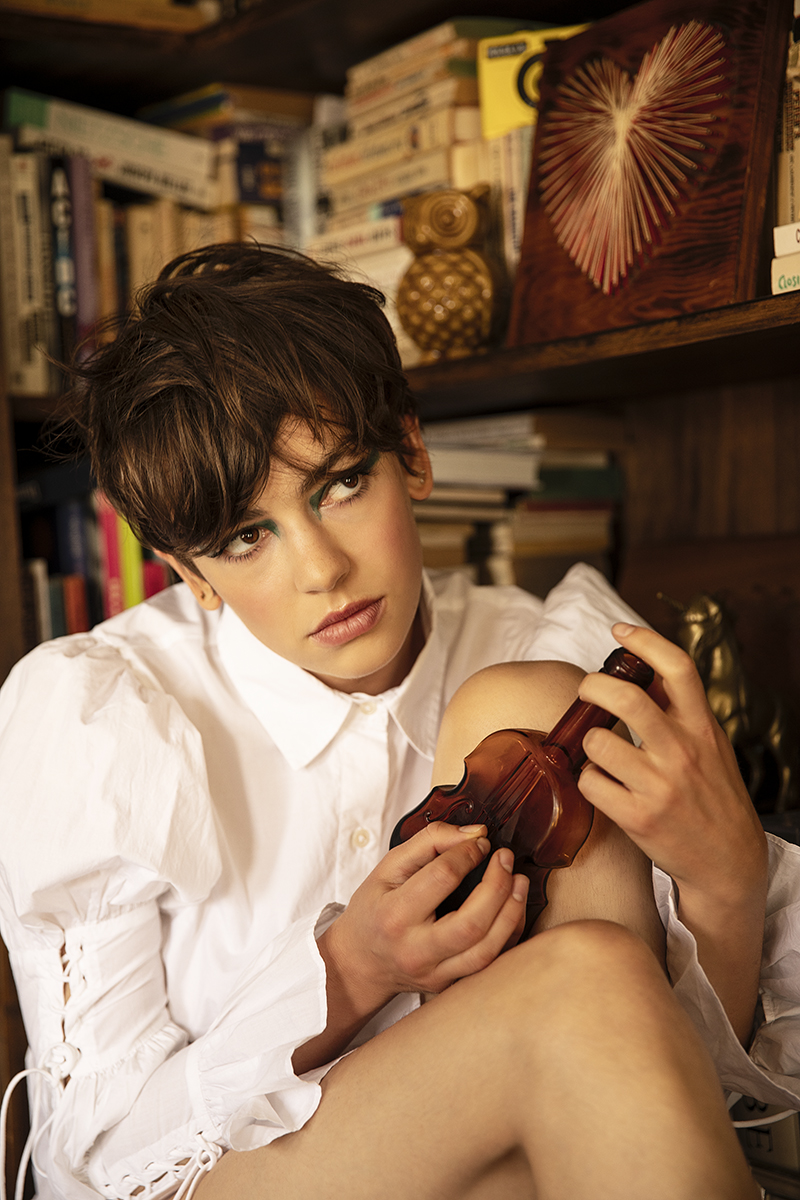
You guys are so insane, I love it. I was looking at Youtube videos and I was like what is this, it’s incredible. It was really making me laugh out loud, I was like, she’s crazy! I love it! So what do you and your friends do? Do you guys just goof around, what do you do with your friends?
We’re constantly making stuff, that’s my favorite thing to do. I actually have a friend over right now, we’re going to do a photo shoot. ‘Cause I have a magazine that I just started with my friend Zack, it’s called Waif Magazine. It’s a fashion and art magazine, we just put out our second issue. One of the articles in it is called “Dirty White Shoes” because I think that’s an incredible trend that is not a trend on purpose. So my friend and I are doing a photoshoot in white shoes today. But mostly when I hang out with my friends, we’re writing songs or working on the magazine. I can’t not be creating.
Yeah, I know the feeling. I feel like I always have to be writing or always doing something. I feel like I have anxiety if I don’t have a project I’m stressing out over.
I know, it’s the gift and the curse.
So you went to NYU, right? You went for acting- what was your experience in just a traditional school setting?
NYU has different schools for acting, so there are different techniques that they teach you. And I went to this [?] school for acting called Atlantic. And it’s a very hardcore, the whole thing about it is they [?], get tough or go home on them. It’s very strict. If you’re late, they lock the door and you’re not allowed to come in. So, I spent a lot of afternoons alone in the West Village has been late for class. But most of the time I was on time, I learned so much from that school because they don’t let you off the hook and it becomes a lot more about learning to act. It’s really just about learning discipline, and they’re huge on creating an artistic community that you can continue to work with. And that’s what I did- both of my bandmates are from Atlantic. So it’s cool, and it’s also nice to go to school in New York City because then the transition is so easy, it just flows into one: college and after college, they don’t feel so different. I started working when I was 19, when I was a sophomore.
That’s awesome. That was my experience, I went to the New School. I basically went there so I could live in New York and just transition. And I even ended up being there for fifteen years and back and forth, so I totally get that. Now, what do you want for your future, what is your ideal project to work on and what do you want your jobs to be when you’re 70?
Ooh, when I’m 70. I think there may not be a model yet for what I want to do. I’ve been thinking about that a lot. I’ve worked with a lot of actors in their careers and I’m really inspired by Frances McDormand. And she didn’t start working until she was 30, that’s when she did her first movie and she’s consistently done such good work throughout the course of her career. And I want that, but there’s so much more than I want. I love being a magazine editor, that is so fun to explore, and there are so many paths that I feel like, I’m really interested in creating an artistic community that’s working constantly and it’s not always about getting a role in a movie. Because I feel like for the last couple of years, that’s what I’ve been about and what are roles that can further my career, whatever. And I feel like I’d love to redefine that for myself and for every young artist, like what can we make for ourselves and how can we continue to make work that is honest and breaks out of this really consistent hetero mold that’s been laid out for us.
That’s amazing, that was kind of going to be my next question, is how do you fit in the mold of this generation where it’s like social media and who’s going to get the most followers and who’s gonna to get this starring role with this person? Are there pressures with that? I feel like you just answered that, but do you do any meditation or any mental work to deal with being an actress with a name in this generation?
Yes, I think the most helpful thing for myself has been to realize that my Instagram character is a character, someone who wants you to have a platform and that brings a layer to the art I want to create. I think we’re on the path, but using your Instagram or social media presence as a palate of artistic exploration is really all you can do. Because thinking of it as yourself and an extension of yourself is really dangerous and unnecessary. Why do it?
I actually just thought of something the other day. And I have really bad anxiety, so I was like, “Ah, should I delete this post?” I freak out on the internet. And I was like, I’m just going to start having fun and I’m going to use the internet, I’m not going to be afraid of the internet, the internet is going to be afraid of me. I’m going to post whatever I want when I want…
Exactly, it’s so much about perception.
It’s so much about perception, and I think that’s going to help a lot of people, what you just said.
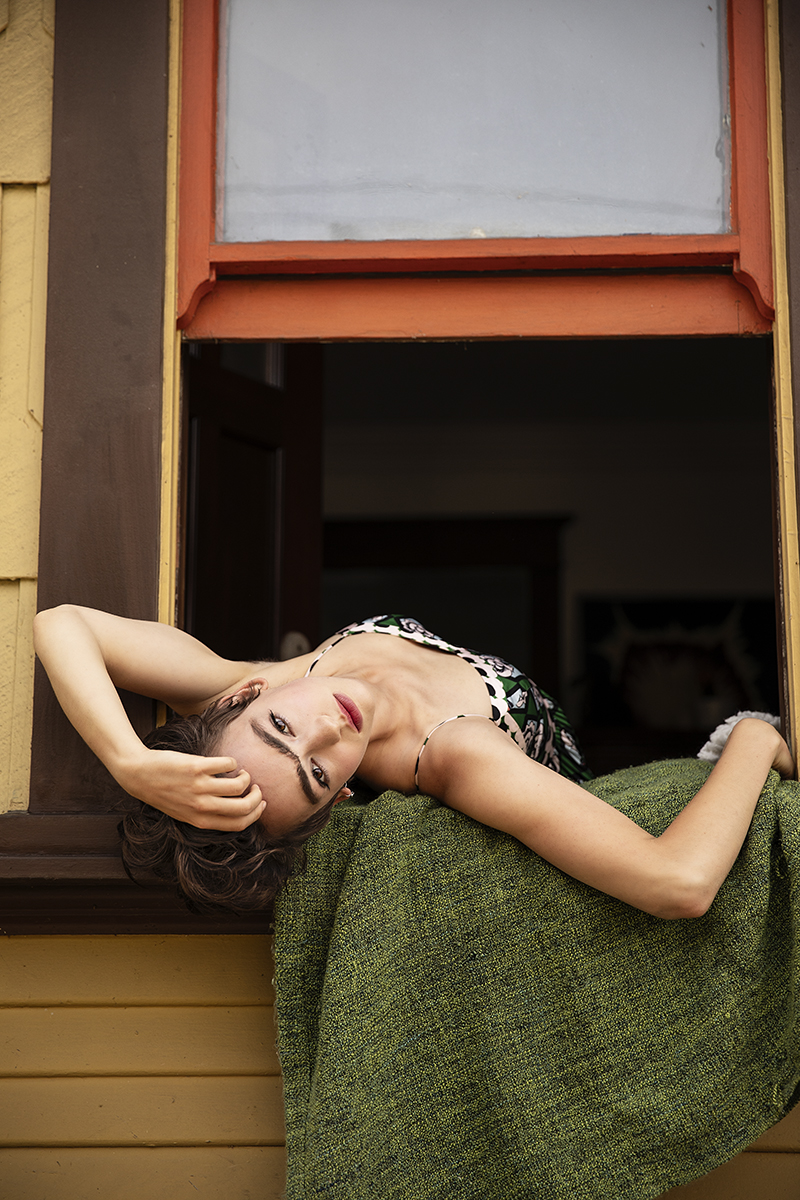
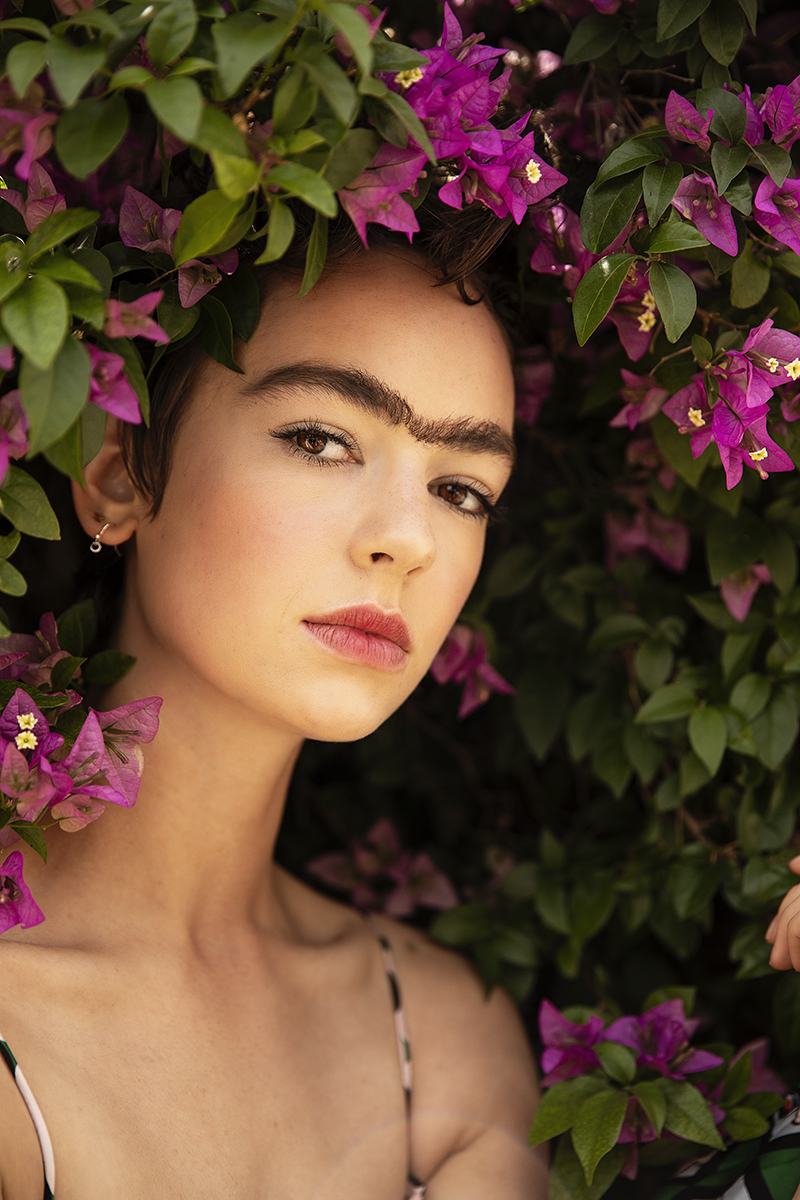
Dress, Milly
shirt, FRAME
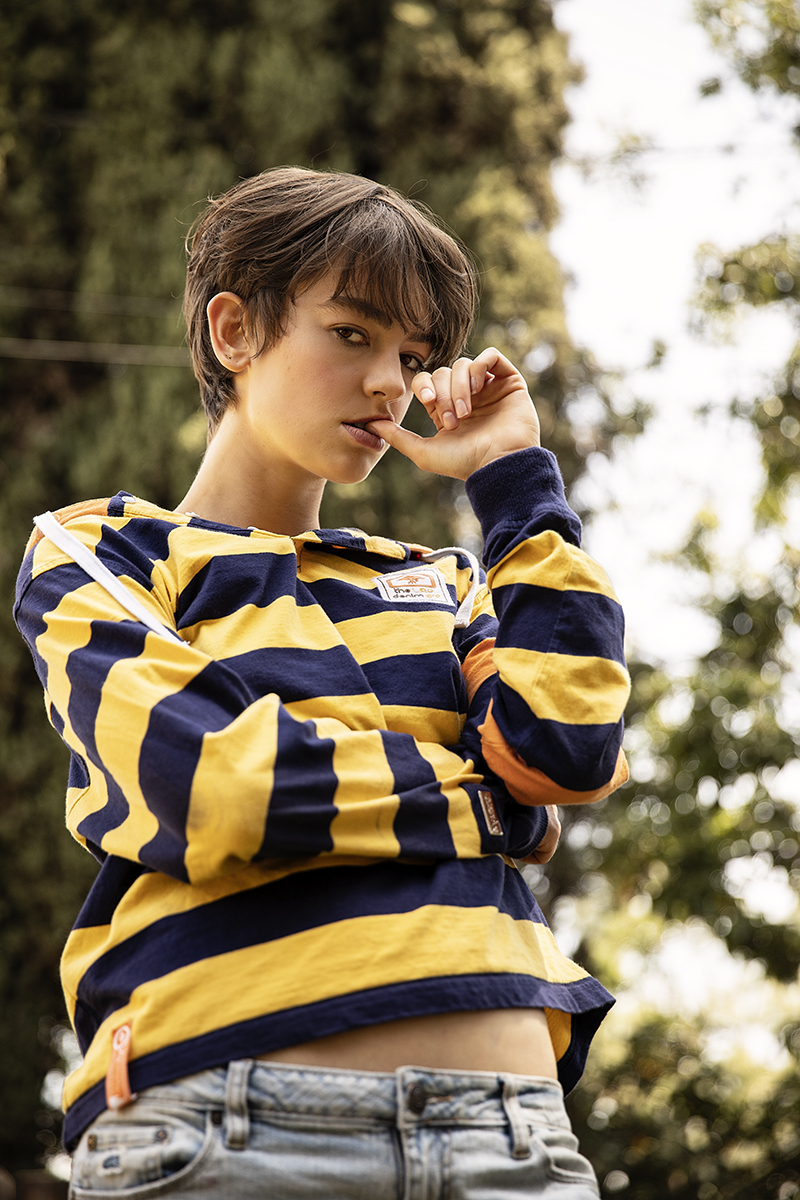
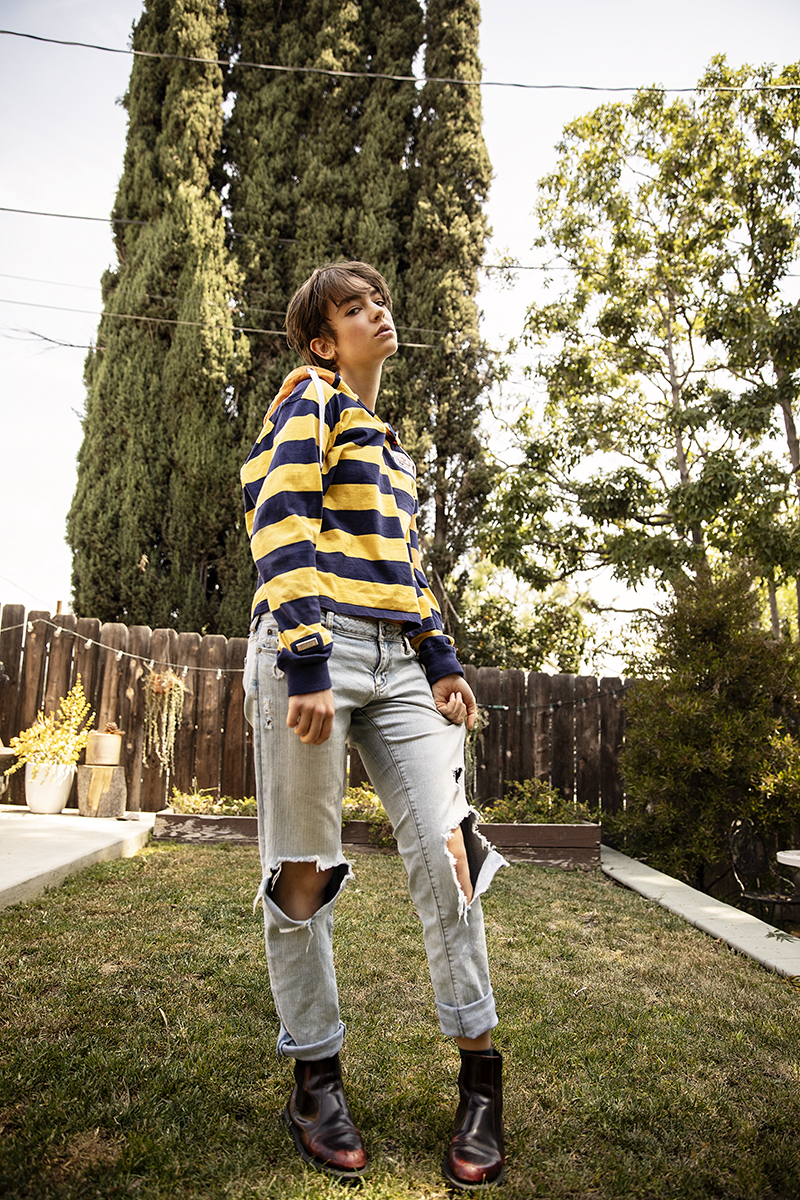
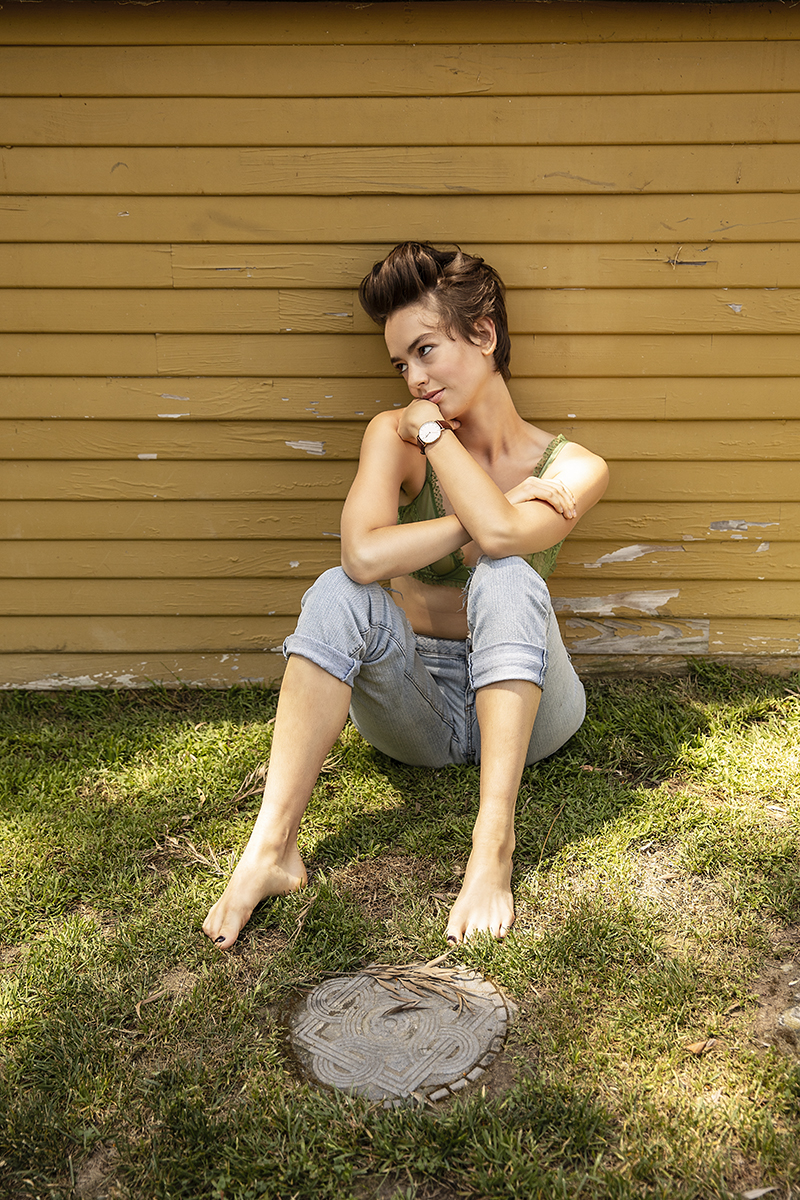
full look, Brigette’s own
earrings, Vanessa Montiel. top, GCDS. Pants,Vasilis Loizides.
